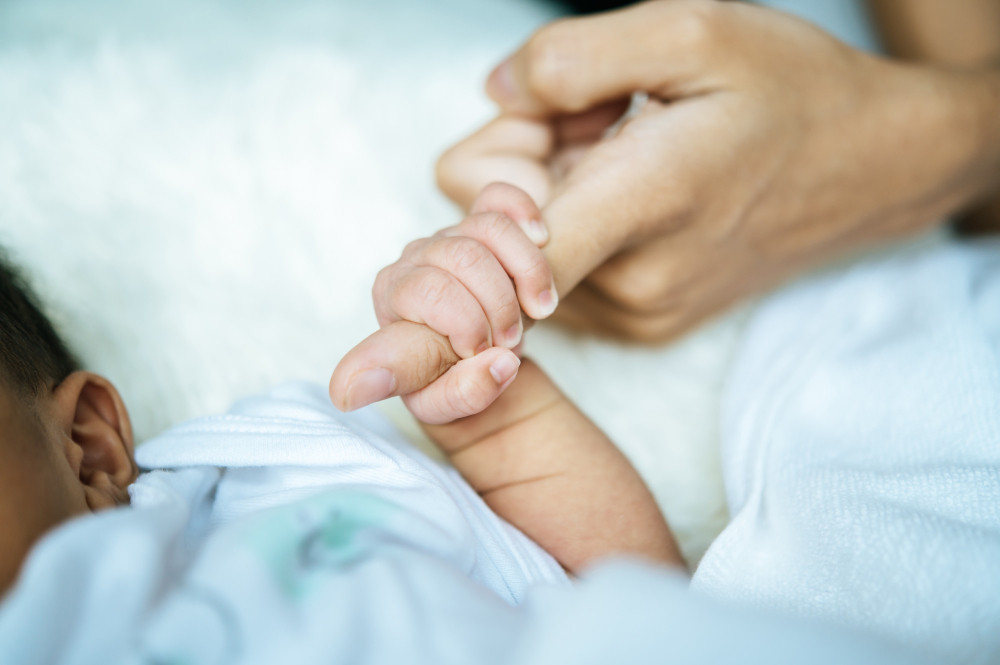CPR stand for cardiopulmonary resuscitation is an emergency procedur for patients who experience cardiac and pulmonary arrest. CPR could be given for adults patient or even an infant (babie under 1 year old). While performing CPR for adults need full strength, CPR for babies need gentler push.
How to Perform CPR on Babies
Cardiopulmonary resuscitation (CPR) is a life-saving treatment used to treat cardiac arrest, which occurs when a person's breathing and heartbeat stop. This rescue method is typically performed by rapidly and forcefully putting pressure to the chest. However, because babies' bone density vary, CPR is performed differently.
Cardiopulmonary resuscitation can be administered to infants who have respiratory or cardiac issues, were delivered prematurely, had a protracted labor, or whose mothers used sedatives during labor.
How to do CPR on a baby:
Making sure the baby is safe
Before performing CPR on a baby, make sure there is nothing that could harm the baby around you or the baby. If the baby is in a dangerous location, move the baby to a safe and secure area.
Check the baby's consciousness
Check the baby's consciousness by calling the baby's name or screaming loudly and squeezing the baby's shoulders. Check to see if the baby opens its eyes or cries. If the baby doesn't respond, tap the bottom of the baby's feet and scream again while checking for breathing, bleeding, or other life-threatening conditions. If the baby does not respond, call an ambulance immediately.
Read more: Here's What You Need to Do on The First 1000 Days of Life
Check the baby's airway
Check the baby's mouth for airway obstruction such as food or vomit. Use your little finger to remove food or anything that is blocking it, but avoid sticking your finger into the back of your baby's throat.
After that, check the baby's breathing while checking baby's chest movements, listening to breathing sounds or feeling the baby's breath on your cheek. If the baby is breathing, put the baby in the recovery position on its side with the head tilted down. Check the baby's breathing and response until the ambulance arrives.
Read more: When Babies Can Sleep with a Blanket?
Perform chest compressions
To perform chest compressions, place the baby on a flat, firm surface. Place 2 of your fingers in the middle of the baby's chest, between the nipples. Press the baby's chest 30 times at a speed of 2 compressions per second. Each compression should push the chest down by about a third.
After giving compression, give rescue breathing to the baby while holding the baby's head so that the chin does not drop. Inhale and cover the baby's mouth and nose with your mouth then blow slowly for one second, and pay attention to whether the baby's chest rises or not. Watch and feel the air coming out of the baby's chest. Take another breath and repeat. If the baby's chest does not rise, check again for blockages.
Keep giving chest compressions for 30 times and followed by rescue breathing until help arrives. Check the baby's response. If the baby responds then put the baby into the recovery position.
Giving CPR to babies needs to be done very carefully because the baby's muscles and bones are still very vulnerable. If you have concerns about your baby's health, don't hesitate to consult with a doctor or utilize the consultation features provided by Ai Care.
Need more information about pregnancy, breastfeeding, women's and children's health? Click here!
- dr. Monica Salim
American Red Cross. Child and Baby CPR. Available from: https://www.redcross.org/take-a-class/cpr/performing-cpr/child-baby-cpr
St John Ambulance. How to do Baby CPR (under one year old). Available from: https://www.sja.org.uk/get-advice/first-aid-advice/paediatric-first-aid/how-to-do-cpr-on-a-baby/
NHS. How to Resuscitate a Child. Available from: https://www.nhs.uk/conditions/baby/first-aid-and-safety/first-aid/how-to-resuscitate-a-child/
Raising Children. CPR for babies under 12 months: in pictures. Available from: https://raisingchildren.net.au/newborns/safety/cpr/cpr-for-babies
British Heart Foundation. How to do CPR on a child or baby. Available from: https://www.bhf.org.uk/how-you-can-help/how-to-save-a-life/how-to-do-cpr/how-to-do-cpr-on-a-child-or-baby











